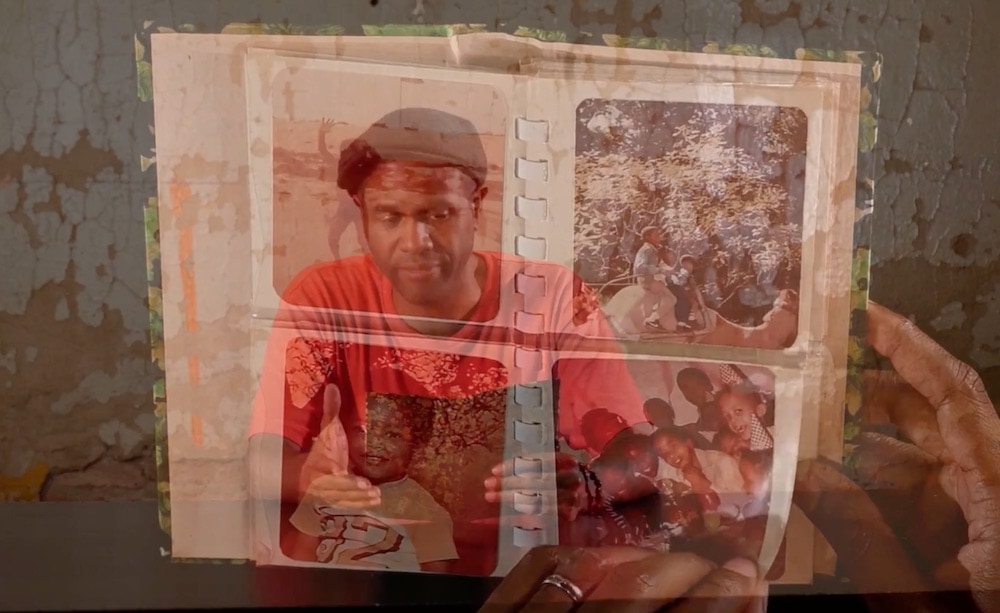Urgent times call for urgent theater. And urgent theater has been Mosaic Theater Company’s calling card since its founding — rather unexpectedly — five years ago, by artistic director/playwright Ari Roth.
At a time when theater stages are empty, with a dim ghost light taking the place of vibrant performers and productions, companies like Mosaic are seeking innovative ways to disseminate their works. At the same time some, like Mosaic, are speaking to this difficult moment in our nation’s history as we reckon with the legacy of enslavement and centuries of white-supremacist policies and ideologies. This week, through October 31, a workshop presentation of the new play-in-progress Dear Mapel expounds on new ways to reimagine live theater in a video format that doesn’t make the viewer feel like something is missing. And it tells a deeply personal tale that resonates with the urgent call, especially for those who carry white privilege, to acknowledge, understand, and take steps to eradicate the living remnants of America’s original sin — slavery and racism.
Written and performed by actor/playwright/spoken word artist Psalmayene 24, Dear Mapel is a deeply personal reflection on his relationship with his absentee father. Composed as a series of nine letters to the man he met only twice, the 50-minute work-in-progress digs into the writer’s buried hurts, as a youth growing up without a father he could rely on, and later as young man making his way in the world.

We meet Psalmayene 24 in a wash of poetically declarative statements. Seated at a desk holding the pages of his writings, he boldly asserts and proudly owns each of his distinct identities: “I am an incorrigible nonconformist, an instigator of delight, an urban fabulist, a living affirmation of galactic possibilities….” He even offers his 23andMe statistics: 38 percent Nigerian, 8 percent Irish, and everything in between. “I am,” he says, “from a mother with supernatural faith…and from a long line of womanizers.”
He is, last and first, a son. And this moment, he notes, the time is right to share his story, for it feels like the nation, the world even, balances on the cusp of a revolution in rethinking old strategies, tired ideas, buried hurts and pains. Dear Mapel marks a time to reassess and readdress his own hurts, to come to terms with his past and in some way connect with his dead father — not to change the relationship but to understand how it changed him.
Director Natsu Onoda Power, who frequently works imagistic magic with sets, objects, and untraditional stagings, here breaks out of the black box stage space and the confining Zoom boxes. Her approach to sharing this story via computer screens thankfully remains fully theatrical. It never feels like a Netflix experience, nor does this approach make the viewer long for the slick production values of cinema. It’s theater for the screen. And it’s the best that we have right now.
Power shows us a stage set through a delicate artistic rendering of a table and chair in space. A reader shares the stage directions as objects fill out the chalklike sketch through additive animation. While Psalmayene 24 remains mostly seated at his writer’s table throughout the nine episodes, additional animation, sketches, props — like a heart-shaped box of oversized valentines tied together with string — provide enough visual interest to keep the viewer engaged. Joining him is percussionist Jabari Exum, who provides rhythms and syncopations to match the elegant poetics of Psalmayene 24’s storytelling. Exum occasionally chimes in with a rejoinder or sentence. And at one point both performers move to a shabby bar setting for the episode when Psalmayene 24 meets his future wife. Little background touches — like 1980s-style posters for Chuck Brown and the Soul Searchers — ground the scenes in particular moments in time.

We hear Psalmayene 24 read about his awkward bravado as a young teen on the prowl to lose his virginity. Or his fourth-grade misunderstanding of the importance of Valentine’s Day for his school-aged girlfriend. Then we catch his semi-comic screed against being seen as a stereotype — the Black man caught carrying a watermelon, even though, he admits, the perfect watermelon is a delight.
The play-in-progress’s centerpiece deals with Psalmayene 24’s first experience being called the N-word, which changed him, how he behaved, dressed, and acted. The pain in his voice sears when as he asks his father, “Dear Mapel, Have you ever been called a nigger?” Everyone remembers their first time, Psalmayene 24 remarks with cold matter-of-factness.
The moment unleashes frisson in a way that only theater can — taking us back in time, to our nation’s ignominious racist and white-supremacist roots, and then forward, to our present moment in history, where #BlackLivesMatter is not a mere moment but one more salvo in the battle to shed prejudice, hatred, and the many racist anti-isms.
With Dear Mapel Psalmayene 24 solidifies his relationship with Mosaic Theater: this workshop production inaugurates his three-year post as playwright-in-residence, through funding from the Andrew W. Mellon Foundation. It’s an auspicious opportunity for Mosaic, a theater known for producing important new voices under the careful direction of Roth, who frequently demonstrates his thoughtful playwright’s ear for fresh voices.
While Dear Mapel is Psalmayene 24’s letter to his father, it equally is his letter to the world. The time has come, he seems to suggest, for him to share his own story. To confront his ghosts. In doing so, Dear Mapel awakens in us a sense of urgency. He has shared his truth, his pain, his emotional journey. He chose to make these deeply private life experiences public not for his own healing but to allow others to learn from his story.
Dear Mapel—written and performed by Psalmayene 24, directed by Natsu Onoda Power, with percussion by Jabari Exum, presented by Mosaic Theater Company—will be available online January 12 through 18, 2021. Tickets are free (but donations are requested) and must be reserved online.




